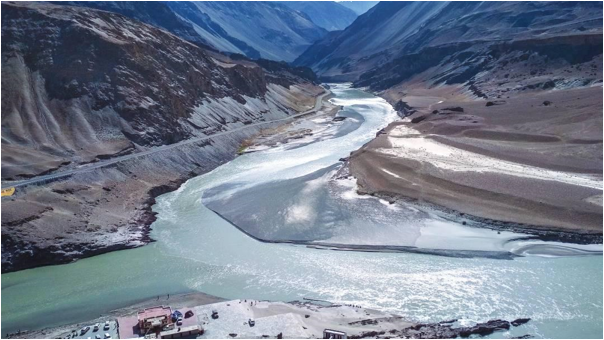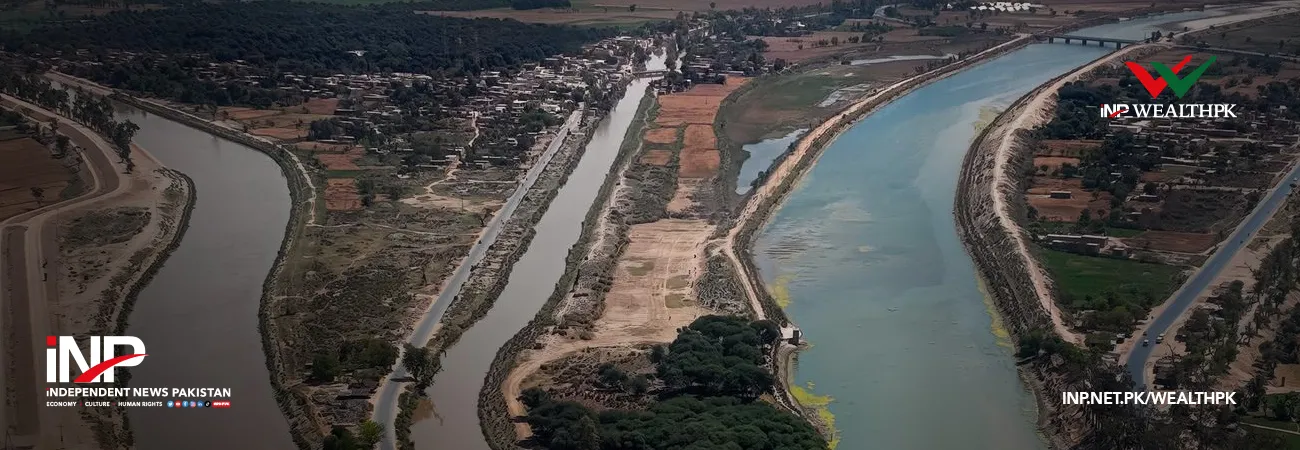i INP-WEALTHPK
Amir Saeed
India’s unilateral suspension of the Indus Waters Treaty (IWT) following the Pahalgam attack exposes New Delhi’s limited leverage in squeezing Pakistan’s water, escalates regional tensions, and risks severe humanitarian consequences.

Talking to WealthPK, Ashok Swain, a professor of peace and conflict research and UNESCO chair on International Water Cooperation at Uppsala University, Sweden, argued that India’s suspension of the 1960 IWT marks a dramatic and risky escalation in South Asian relations. He noted that although the IWT faced political pressure before – such as after the 2016 Uri attack – India previously chose restraint.
Swain highlighted how Pakistan’s response was swift and severe, including suspending the Simla Agreement and threatening that any Indian attempt to divert water would be considered an act of war.
He believed the Indian government’s decision is more about domestic political gain and media sensationalism than strategic foresight, and that it undermines India’s moral standing in international forums.
Swain further pointed out that the legal basis for suspending the IWT is ambiguous and could backfire diplomatically. “The treaty does not have an explicit abrogation clause, so India’s unilateral suspension violates the international principle that agreements must be kept.”
With the World Bank as a co-signatory, the move internationalises the dispute and could lead to arbitration. Swain said that although the treaty has flaws and has not kept pace with climate or population changes, revising it would require cooperation, not coercion.
He also dismissed the idea that India could easily choke Pakistan’s water supply, noting the lack of storage infrastructure, the challenging Himalayan terrain, and the risk of militant attacks on any new dams.
“The only real levers India has are withholding flood data and altering reservoir operations, which would cause only minor, temporary disruptions to Pakistan,” he pointed out.
Talking to WealthPK, Dr Saiful Mujahid, a development economic researcher at University of Chitral, emphasised that while India’s suspension of the IWT is a bold political gesture, its practical impact on Pakistan’s water supply is likely to be limited.
He opined that the technical and geographical challenges of diverting or storing water from the Indus, Jhelum, and Chenab rivers make it nearly impossible for India to use water as an effective weapon. “The Kashmir Valley already has surplus water, and any attempt to build large-scale infrastructure would be costly, slow, and vulnerable to sabotage.”
“Instead of directly threatening Pakistan’s agricultural output, India’s actions are more likely to introduce uncertainty and complicate water management for Pakistani authorities. This could lead to administrative challenges and planning difficulties, particularly during critical irrigation periods, but would stop short of causing widespread agricultural disruption,” he noted.
Mujahid concluded that while the suspension sends a strong political message, it does little to change the underlying realities on the ground and may ultimately deepen mistrust, making future cooperation over shared water resources even more difficult.
Credit: INP-WealthPk








